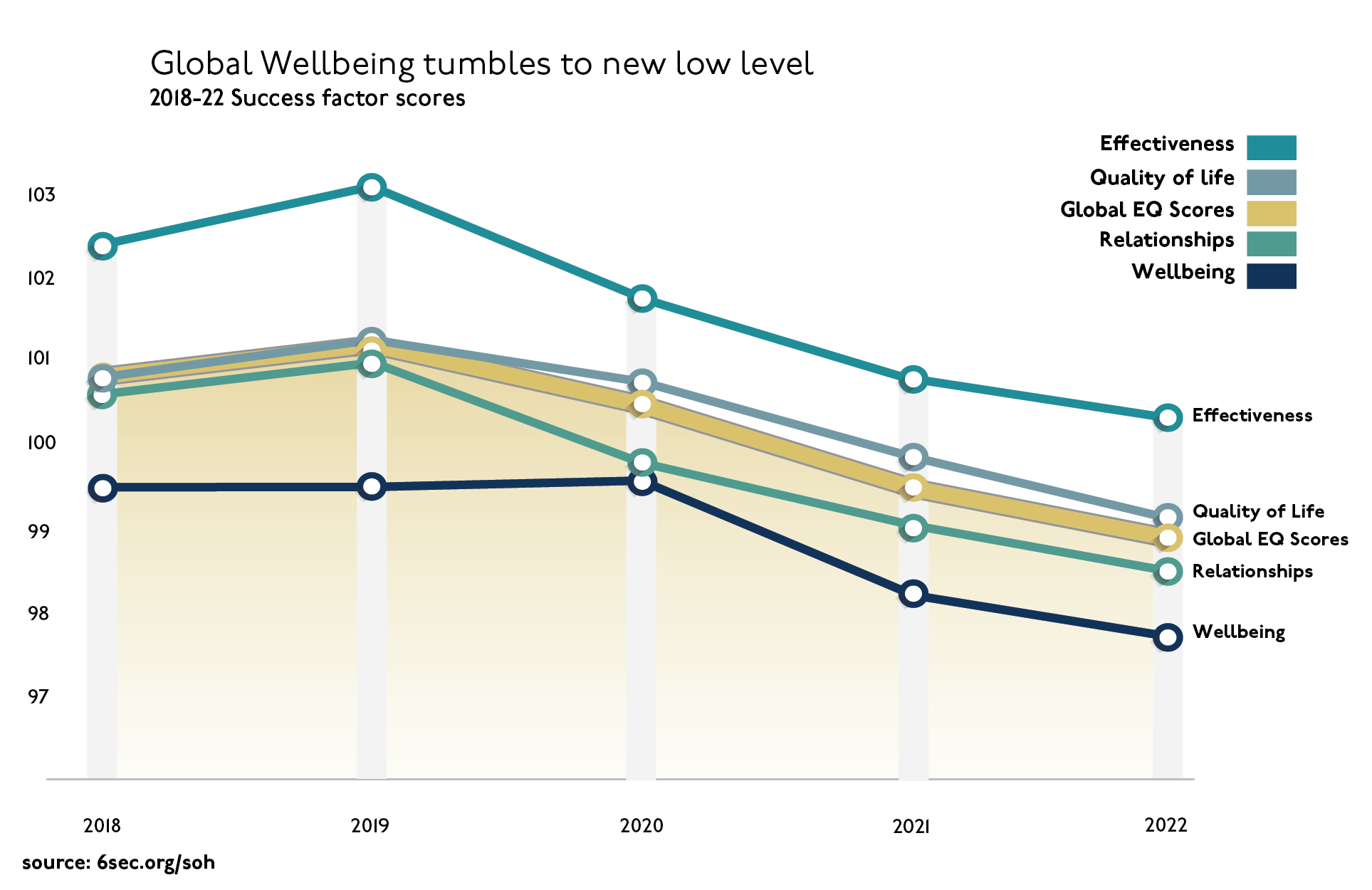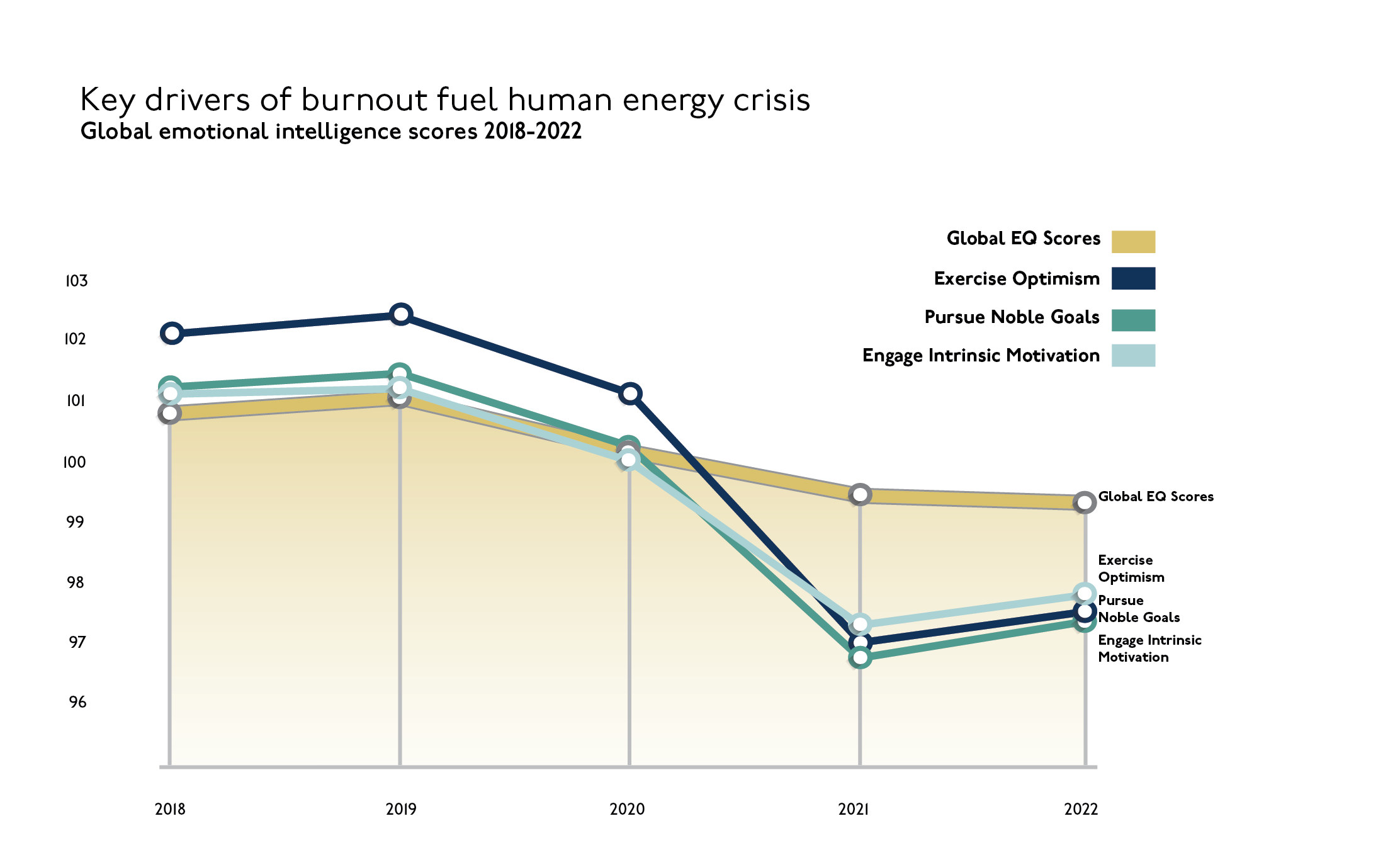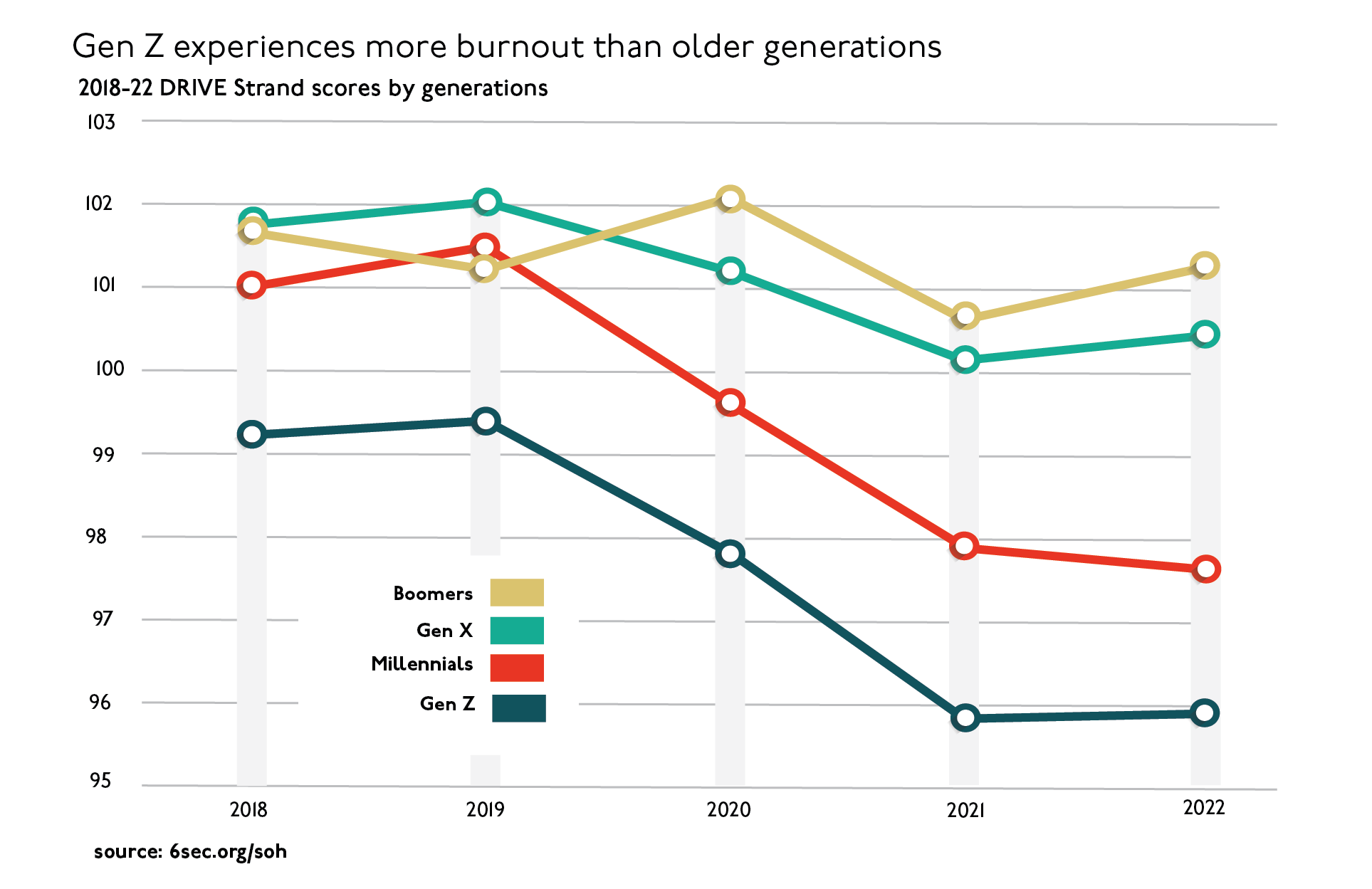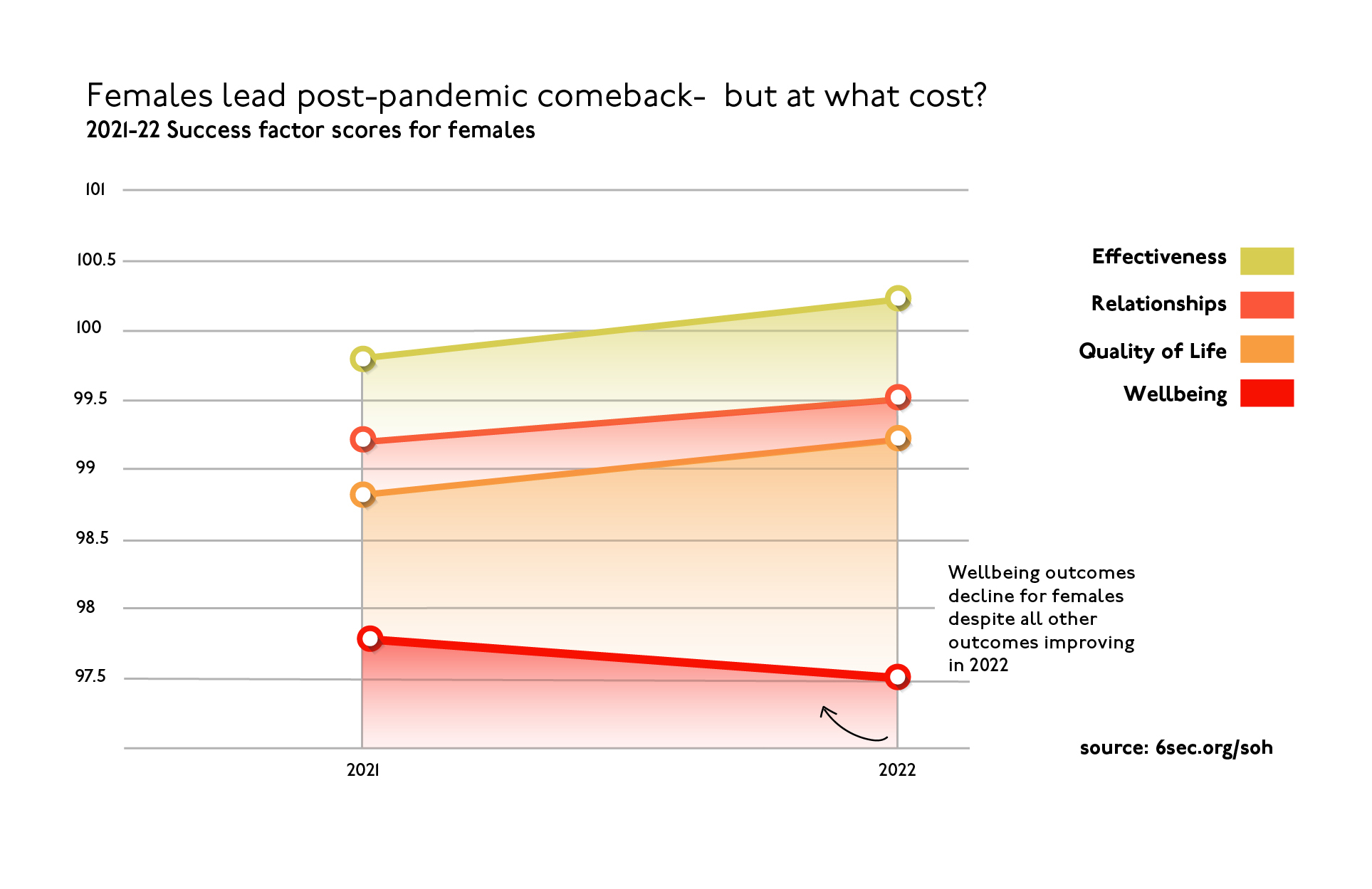We’re Facing a Global Human Energy Crisis
New analysis from the world’s largest study of emotional intelligence.
By Michael Miller
The world is facing a human energy crisis – at home and at work.
People are tired, burnt out, and too often, not thriving. According to Gallup, seven in 10 people globally report they are struggling or suffering. More than ever, people are lonely and isolated. Our soon-to-be-published State of the Heart data adds to this growing body of evidence. From 2018-2022, our collective emotional intelligence declined significantly – overall and on all 8 competencies in the Six Seconds Model of Emotional Intelligence. On a range of measures of how life is going, called Success Factors, the answer is: not well.
“Globally, people are struggling. In the Six Seconds Emotional Intelligence data, scores declined significantly on all 4 Success Factors – with Wellbeing hit the hardest.”
Six Seconds, State of the Heart 2023
Learn more: 6sec.org/soh
The struggles show up at (or stem from) work, too. Only 23% of employees around the world are engaged, and 60% describe themselves as emotionally detached. The pandemic, ongoing global unrest, and an unstable economy have pushed many people and businesses to the breaking point. While the issues are not new, the downturn accelerated since 2019.
The result? High rates of burnout – a state of emotional, physical, and mental exhaustion caused by excessive and prolonged stress. It occurs when you feel overwhelmed, emotionally drained, and unable to meet constant demands. A closer look at the emotional intelligence data tells a clear story: the stressful two-year period from 2019-2021 wiped out people’s energy reserves and caused an epidemic of burnout. Burnout peaked in 2021, and while we have experienced a modest uptick since then, levels remain elevated compared to the pre-pandemic norm.
In the graph below, you can see that global emotional intelligence scores (shown in yellow) have declined since 2019. And, three competencies specifically related to burnout dropped precipitously in 2020-2021. We call these three the “Drive Strand” because they are connected to helping us drive forward. While Drive is improving in 2022, it’s still significantly below the overall average EQ score – suggesting a persistent global issue with burnout.
“The stressful two-year period from 2019-2021 wiped out people’s energy reserves and caused an epidemic of burnout.”
Six Seconds, State of the Heart 2023
Learn more: 6sec.org/soh
A growing body of evidence suggests the world is facing a new pandemic: Burnout. A Deloitte survey of 1,000 full-time workers across different sectors in the United States revealed that more than 77 percent had experienced burnout at their current job, and Microsoft’s Work Trends report found that more than half of managers (53%) report feeling burned out at work. This data should serve as a wakeup call for business leaders, HR leaders, policymakers, and anyone else interested in people thriving:
It’s time to reinvest in mental and emotional health.
Struggling with employee burnout? Here are 5 evidence-based emotional intelligence strategies for leaders →
The human energy crisis isn’t evenly distributed among subgroups
A closer analysis of the data reveals that the human energy crisis is not evenly distributed among all groups. Starting in 2021, women have led the post-COVID comeback. While men’s scores on emotional intelligence and life success outcomes have continued to decline, women have bounced back. There are also key differences between global regions, as well as differences by job sector. (Download the full report below to learn more).
The biggest difference is between age groups. The Drive strand on the graph below is, essentially, burnout, and broken down by age group. Gen Z is dealing with a full blown crisis of mental health, wellbeing and burnout, and Millennials are on a similarly troubling trajectory, while Boomers and Gen X are thriving at much higher rates.
“Gen Z is dealing with a full blown crisis of mental health, emotional intelligence and wellbeing.”
Six Seconds, State of the Heart 2023
Learn more: 6sec.org/soh
The desire for wellbeing at work outpaces the reality
One interesting trend to note is that employee’s desire for greater balance and wellbeing has grown significantly since 2019 – even as it’s plummeted in practice. Microsoft’s Work Trends report found that over half of employees (53%) say they are more likely to prioritize health and wellbeing over work than before the pandemic, particularly parents (55%) and women (56%). Unfortunately, that is not the reality for most people. Globally, less than 50% of employees believe that their organization cares about their wellbeing, according to Gallup. Wellbeing is at the lowest point since we began tracking it in 2011.
About the research
The State of the Heart report is the world’s largest study of emotional intelligence. Drawing on a large global dataset from over 129 countries, State of the Heart uses a randomized sample balanced by geography, gender, and age. The data comes from the Six Seconds Emotional Intelligence assessment, or SEI.
Want a copy of this year’s report? Just fill out the form below and we will drop it in your inbox as soon as it’s published.
- Emotional Intelligence at Work: Slack Study Finds Massive Benefits to Taking Breaks, but Half of Employees Don’t Take Them - July 16, 2024
- Building Burnout Resilience at NHS through EQ Coaching Program - June 25, 2024
- Emotional Intelligence at Work: The Free, Easy Win Most Managers Are Missing - June 18, 2024




